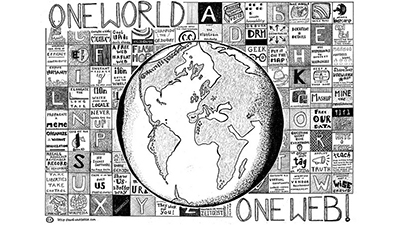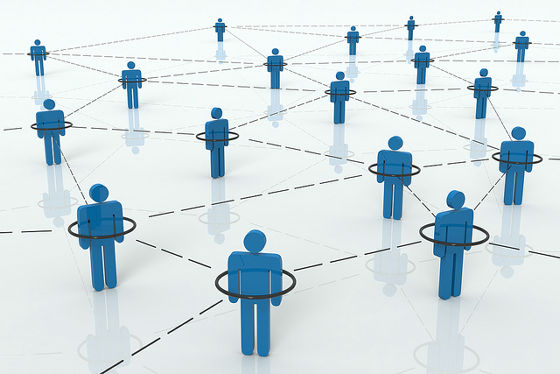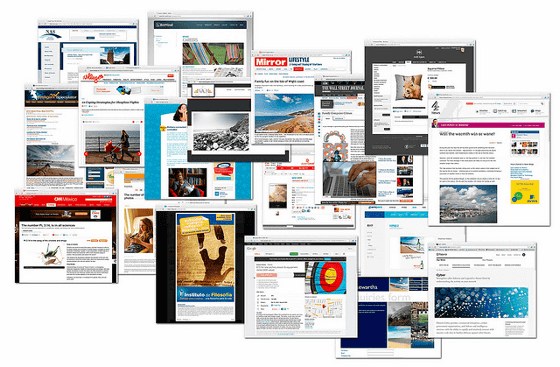It turns out that the Internet does not affect the improvement of intelligence and many people 'just think so'

By
Research has shown that the Internet, which can be said to be a ' treasure of knowledge ' full of knowledge and information from around the world, has little effect on the improvement of the intelligence of the people who actually use it. Studies have shown that people who use Internet search engines tend to overestimate their intellectual abilities.
PsycNET --DOI Landing page
http://psycnet.apa.org/?&fa=main.doiLanding&doi=10.1037/xge0000070
The Internet doesn't make you smarter; you only think it does | Ars Technica
http://arstechnica.com/science/2015/04/the-internet-doesnt-make-you-smarter-you-only-think-it-does/
It is a research result that seems to be overwhelming when people who actually get a lot of knowledge and information from the Internet hear it, but this was published by a research team at Yale University in the United States and published in the Journal of Experimental Psychology . In the study, subject groups are divided into 'search engine-using groups' and 'search engine-free groups', and each group is given by the net by measuring the degree of 'confidence' they have in their knowledge. I investigated the influence.
◆ 'Collective intelligence' and 'Transactive memory system'
The power of knowledge brought about by the Internet is recognized as collective intelligence or 'collective intelligence', and by having an enormous amount of knowledge that one person cannot have, it is as if one intelligence in a group via the Internet. It has the power to make you feel as if the spirit exists.
Among them, for example, 'Mr. A in the sales department is a leading person on how to conclude a transaction contract' 'You can ask Mr. B in the warehouse department for logistics' 'Mr. C in the general affairs department for in-house ceremonial occasion manners' Recognizing 'who knows what', such as 'detailed', is called the ' Transactive Memory System ( TMS )' and provides efficient access to the information you need to improve performance. It is considered to be an important factor to improve.

By
And search engines such as Google and Bing play a major role in TMS in the world of the Internet. Search engines tell you where in the world you need the knowledge just by entering keywords, and you can get it immediately, so it is the ultimate form of collective intelligence and TMS. It is no exaggeration to say.
◆ What is the influence of search engines on people's intelligence?
Then, the research team at Yale University actually investigated how the use of search engines affects people's intelligence. The research team conducted an experiment in which the subjects who participated in the experiment were asked to explain topics that they did not have much knowledge about . We divided them into ' groups that do not use the engine ' and examined how confident each member could be in their explanation. Subjects are collected using Amazon Mechanical Turk , a crowdsourcing marketplace operated by Amazon.
In the first experiment conducted on 131 subjects, we asked for explanation by asking questions such as 'Why is there a time difference on the earth?' As the first stage ' introduction phase ' of the experiment. One group was asked to use a search engine to score how confident they were in their explanations after answering. Have one group ban the use of search engines, have them answer the same question, and score their confidence in their answers as well. As a result, the group that used the search engine as expected was more confident .

By
Next, another new question was asked in the second stage, the ' self-evaluation phase .' At this stage, both groups were banned from using search engines, and after answering, they were given the same self-confidence score, but the result was that the group that used the search engine in the first stage had their own answer. It turned out that he was clearly showing a high degree of self-confidence. In this second stage, despite the same conditions, there is an interesting phenomenon that clearly different scoring results are obtained.
The research team conducted further experiments to test this trend. In the next experiment in which 280 people participated, we asked the two groups to perform 'answers' and 'self-scoring of self-confidence' as in the previous experiment, but this time, before conducting the experiment, 'my explanation'. By scoring 'how much power you have' in advance, you can measure how your self-confidence changed before and after the experiment using the search engine. As a result, both groups showed the same level of self-confidence before the experiment, but after the experiment, the group's self-confidence using the search engine was significantly improved.
In addition, the research group instructed the 'use' group to get information from a specific site that was caught in the search, and also told the 'not use' group the same site for information. It turned out that the group that performed the search tended to show a higher degree of self-confidence even when instructed to extract. In other words, it became clear that the act of 'searching' itself has the effect of increasing self-confidence .

By
On the other hand, however, the research team said, 'This tendency created by using search engines may increase not only the information that is caught by search engines, but also the self-confidence of the person's cognitive ability.' Raises the question. If this is true, it will also show a high degree of confidence in questions other than the information available on the net. So the research team conducted the following experiment to verify this.
When I made this question 'What is the relationship between the class you chose when you were in the first year of high school and your current profession?' It became clear that the 'No' group showed almost the same numbers. From here, we can see the fact that by accessing the Internet, people gain confidence in the limited information available on the Internet, not in their overall confidence.
Finally, the research team examines the changes created by limiting the search results themselves. Examining the difference between the two with only information that was of little use to the search results, it became clear that the group that performed the search still showed the same tendency to show high self-confidence in the 'self-assessment phase'. rice field.
The research team combined these results and revealed that when searching on the Internet, people tend to have a kind of illusion that they have expanded their knowledge by the act of searching, regardless of the content of the search. I conclude that.

By Frederik Hermann
Furthermore, the tendency discovered this time is not limited to the Internet, but is also seen in situations where a lot of information is gathered, such as libraries, but it is especially noticeable on the Internet with a large amount of information and high accessibility. Said the research team.
Related Posts:
in Posted by darkhorse_log







